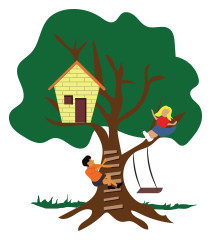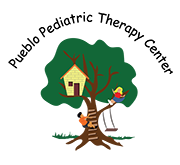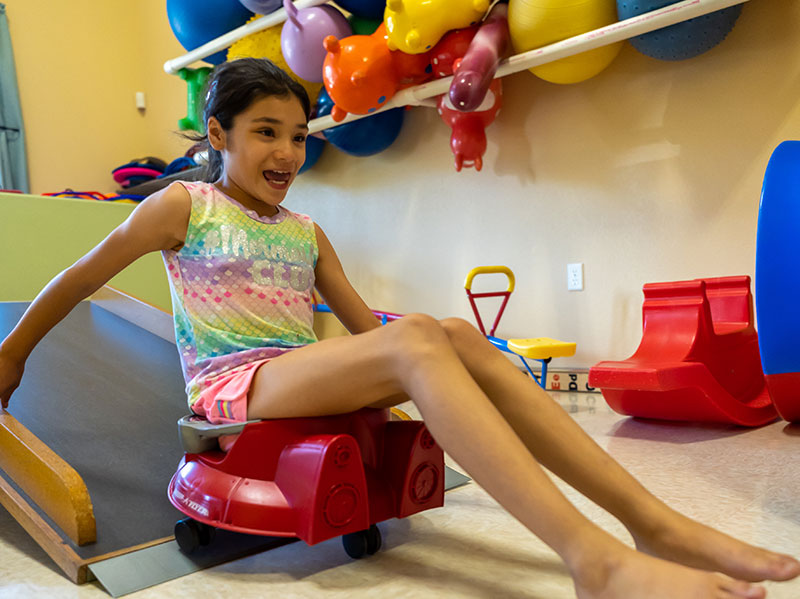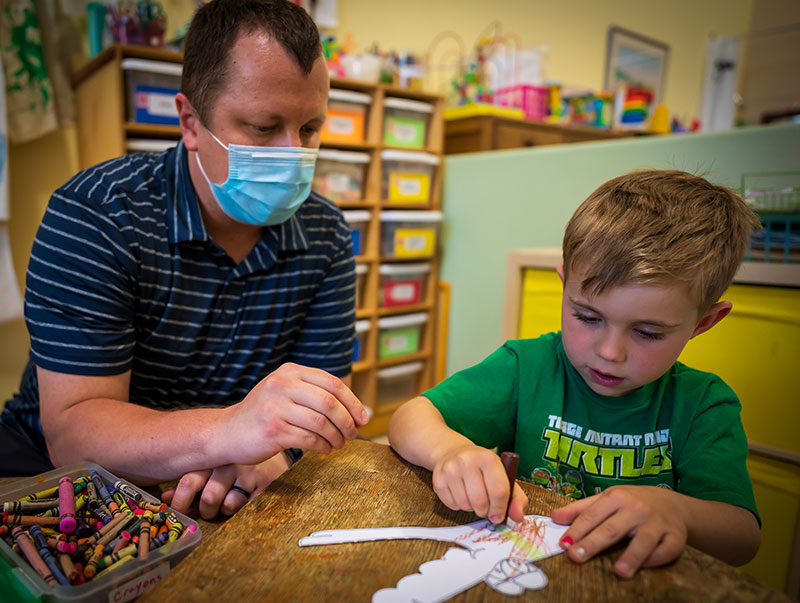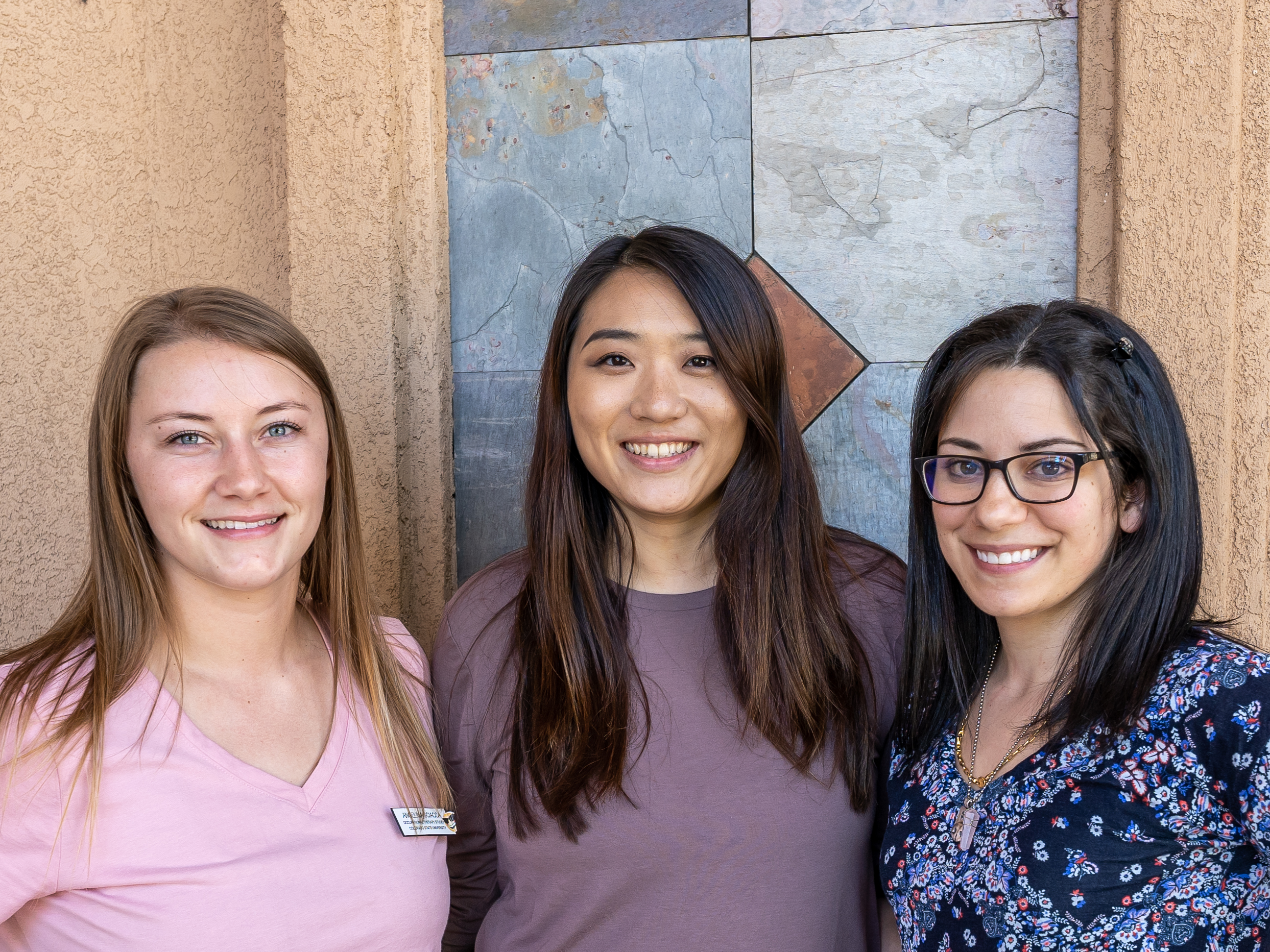Pediatric Occupational Therapy
Does your child need pediatric therapeutic services? Allow our team of licensed occupational therapy professionals at Pueblo Pediatric Therapy Center to guide your child through development.
Based in Pueblo, CO, we work together with families and children to provide effective occupational therapy treatments that will help your child excel. We are dedicated to delivering the personalized and nurturing care your child needs. With us, your child will feel comfortable and confident in who they are.
Frequently Asked Questions
What makes our occupational therapy clinic unique?
Our clinic highly prioritizes and respects both the child’s and their families’ preferences, wants, and needs throughout their occupational therapy journey/experience. We value and view each family as a whole and encourage them to become active members of our therapy team.We pride ourselves on respecting the voices of each child. Each occupational therapist is highly trained, mentored, and provided with encouragement and freedom to utilize clinical reasoning skills, critical thinking, and we validate their unique therapeutic style.
We are a teaching clinic. We frequently take OTR and OTA students from all over the country. We also serve as an observation site for local family practice physicians in their first year of residency. Being a professional education site ensures our practice is of the highest quality, evidence-based, and effective. This would not be possible without the trust and generosity of our families who allow students to work with their children.
What is Occupational Therapy?
“Occupational therapy is the only profession that helps people across the lifespan to do the things they want and need to do through the therapeutic use of daily activities (occupations) (American Occupational Therapy Association, 2021). Occupational therapy practitioners enable people of all ages to live life to its fullest by helping them promote health, and prevent — or live better with — injury, illness, or disability.”
- (AOTA, 2021)
What qualifications do the therapists at PPTC have?
Our therapists have advanced degrees in their field, have passed national exams, and are all fully licensed to practice in the state of Colorado. As a practice, we provide our clinical staff the necessary resources to obtain ongoing continuing education to stay current in their fields. In addition, many of our therapists have received specialized training in specific treatment approaches or areas of specialty. For individual staff biographies, please visit our team page
What do pediatric occupational therapists do?
Pediatric OT practitioners work with children and their families to develop the necessary skills to participate in things they want and need to do. They need to do it through play (a child’s primary occupation) or participation in other age-appropriate activities. Pediatric OT practitioners use a holistic perspective and evidence-based approaches to engage children in meaningful ways to increase their overall function, performance, and participation in many environments. This approach can mean learning new skills at each stage of development or rehabilitating abilities lost due to injury or illness. Occupational Therapists do not diagnose clients; we evaluate and treat symptoms and challenges resulting from diagnoses.
What is the difference between OT and PT in the pediatric setting?
People often wonder what the difference is between OT and PT as their roles overlap and frequently collaborate. Even though they address similar issues, the approach of the PT is more exercise based while the approach of the OT is more activity based. It is important to note that both OT and PT are beneficial to a child’s success as they address critical skills that facilitate the development of children. At this clinic we offer OT only.
Who are the children we treat?
We treat a variety of wonderful children with many unique needs that include, but are not limited to children with:
Age ranges: Birth to 18
- Prematurity and newborn developmental issues
- Prenatal drug exposure
- Torticollis
- Autism
- Cerebral Palsy or other movement disorders
- Genetic disorders
- Sensory Integration/Processing deficits
- Motor deficits related to developmental, neurological, coordination, dyspraxia, muscle tone, strength, neurological, or residual reflexes
- Social and behavioral disorders related to sensory and motor deficits
- Learning differences
- Handwriting deficits
- Attention deficits
- Self-care difficulties
- Feeding issues
- Visual impairments
- Visual perceptual disorders
What is the evaluation process?
We ask the family to complete an Occupational Profile, a summary of the child’s medical and developmental history, their patterns of living, values, needs, and what challenges they face in their daily lives. This summary is optimally provided to the clinic before an in-person evaluation. The evaluation consists of a parent/guardian interview and a play-based assessment, allowing the child to engage and interact in the clinic naturally while being observed and assessed by an OTR and COTA. The child will participate in a standardized evaluation if appropriate. Parents may be asked to complete standardized checklists. A plan of care is developed with goals that include family priorities.
How do I schedule an evaluation?
If you have concerns or have been advised by your doctor, teacher, etc, that your child might benefit from occupational therapy please contact our office at 719-253-7727 for more information.
What are your scheduling options?
Each child’s schedule is determined based on their individualized plan of care. We are primarily in-clinic but also offer telehealth services when necessary.
- Every other week
- Every week
- Track (2 weeks on, 1 week off)
- Appointments are typically 1 hour but can vary.
What type of treatments do you provide for infants and toddlers?
Occupational therapy practitioners provide early intervention services to children ages birth to three years old who exhibit developmental differences. Delays in typical development that we may address through occupational therapy include gross motor skills, fine motor skills, reflex integration, social/emotional skills, and cognitive skills. The first three years of a child’s life are a critical time for development. Therefore, if a delay is suspected, it is best practice to begin treatment as soon as possible.
Occupational therapy practitioners can also treat infants with Torticollis. Torticollis is a rare medical condition where the child’s head is tilted toward one side with the chin elevated and leaned toward the opposite side of the head. The cause of this condition is the shortening of the sternocleidomastoid muscle in the neck. Torticollis can be congenital (present at birth) or acquired (developed as an infant due to positioning preference). Positioning and movement techniques are used to restore neck movement and to reverse/stop the progression of skull deformity and craniofacial asymmetry. Treatment of Torticollis will also help to improve the quality of developmental milestones.
Family involvement during treatment for infants and toddlers is vital. Therefore, during all visits, the therapist will partner and work alongside parents/caregivers to provide proper education, techniques, and strategies to continue building skills in the home and everyday routines.
What happens in a typical session?
Therapy sessions typically last 55-60 minutes. Your child’s therapist skillfully utilizes equipment, the environment, and things your child enjoys to work toward goals created in the plan of care. A session for school-aged children typically involves the creation of a visual schedule and participation in 4-5 activities.
Parents are always welcome to participate in their child’s therapy sessions.
Why do kids play during occupational therapy?
Play requires the brain and body to work together. When a child is immersed in play, the brain creates new neural pathways faster and more efficiently than repeating the same task with minimal motivation. Therefore, each session involves play to maximize your child’s learning and growth potential.
As OTs, we adapt your child’s environment and incorporate tools (swings, toys, and games) to provide ample opportunity to develop these foundational skills. These skills may include sensory integration and processing, adaptive skills, postural skills, eye-hand/eye-foot coordination, rhythm, timing, sequencing, gross motor skills, fine motor skills, and social interaction skills.
How is your clinic designed?
-
Your child will participate in therapy throughout the clinic space, depending on their goals for the day. This allows for spontaneous or planned interactions with other children or therapists and allows for the use of the variety of equipment available. Parents are ALWAYS welcome to be a part of their child’s therapy session.
- ADL Room
- Art Room
- Infant/toddler Room
- Conference Room
- Handwriting Room
- Quiet Sensory Room
- Social/Game Room
- Staff Office
- Training Kitchen
- Two Gyms
- Waiting Room
What are the clinic’s operating procedures?/Tell me more about your clinic, how it operates.
The clinic is open Monday through Friday. The majority of therapy appointments begin at 8:00 AM and go until 5:30 PM. Our regular office hours are from 8AM to 5PM, Monday through Friday. The clinic closes for the following holidays:
- Memorial Day
- 4th and possibly July 5
- Labor Day
- Wednesday, Thursday, and Friday of Thanksgiving week
- Last two weeks in December
- One week in March for spring break
Snow days do NOT necessarily follow school closures. Children who have appointments should check our Facebook page, or call the office to check our status.
Can siblings come to therapy?
During the evaluation, the parent is working closely with the therapist so, if at all possible, siblings should not attend the evaluation.
Participation of siblings in therapy is dependent upon multiple factors. The primary factor is: can the child attending their session achieve maximum benefit of OT services with their sibling present? We also must be respectful of other children in the clinic and ensure they are successful.
If the child and other clients receiving therapy at the same time can be successful with their therapeutic activities, sibling involvement can be considered with hands-on parental support to manage the sibling throughout each session.
What specialty programs and services do you offer?
Certifications and/or Specialized training of staff include:
- Feeding Therapy, including the SOS approach, oral motor, utensil use, transition from G-tube feedings to oral, infant feeding techniques
- Sensory Integration and Praxis Test (SIPT)
- Ayres Sensory Integration
- Neurodevelopmental treatment
- Comprehensive Behavioral Intervention for Tics and Tourette Syndrome (CBIT)
- Modified DIR /Floortime intervention combined with Ayres Sensory Integration for ASD
- Pediatric Myofascial release
- Handwriting Without Tears
- Loops and Groups Cursive Writing
- Relationship Development Intervention and other social skills opportunities and training
Therapists attend continuing education courses to better serve children and families in the areas of:
- Anxiety Disorders in Children and Adolescents
- Trauma and Attachment disorders
- Foundations of handwriting skills utilizing Handwriting Without Tears and Loops and Groups Curriculums
- Torticollis
- Kinesiology taping
- Brain Synchronization Therapy
- Yearly attendance at AOTA conferences, both state and national
- Ayres Sensory Integration
- Sensory Processing
- Motor Development
- Developmental Dyspraxia
- Autism Spectrum Disorder
- ADHD
- Specific learning disorders
- Early Intervention
Who will pay for visits?
Insurances We Accept:
- Aetna/American Therapy Administrators
- Colorado Access/Colorado Choice
- Cigna
- Health Partners
- Kaiser Permanente
- TRI-CARE
- Multiplan
- Friday Health Plans
- Anthem/BCBS
- Colorado Medicaid/Health First
- GEHA
- Humana
- Rocky Mountain Health Plans
- United Health Care
- Medicaid
Most insurances allow self-referral. However, we will check your coverage
What is telehealth?
Telehealth is the use of telecommunication technologies to provide health care. Synchronous technologies, such as video conferencing allow health information to be exchanged in real-time. Technologies are HIPPA compliant, and at Pueblo Pediatric Therapy Center, we ensure client information is kept safe during Telehealth sessions. Teletherapy may include evaluations, assessments, consultation, treatment planning, and therapeutic interventions. Teletherapy provides opportunities to overcome barriers such as distance, scheduling, and safety during COVID 19. Activities during telehealth sessions are similar to typical clinic sessions, but caregiver involvement is required in facilitating the therapy process.
What cleaning procedures does your staff engage in?
We employ three cleaning staff members who are here during clinic hours Monday through Friday to ensure that toys and equipment are cleaned and sanitized after each patient visit. Frequent cleaning procedures work to reduce the spread of germs and infection, ensuring client and staff safety at all times. We also contract with a professional janitorial service that cleans our clinic 5 nights a week and sprays our clinic with an EnviroShield that provides total disinfecting of all surfaces and items.
Do you work with all levels of occupational therapy students?
We take pride in providing students with a high-quality learning experience at all levels of their education. Level I students typically come from our local Pueblo Community College and spend 16 hours in the clinic working and observing clients and therapists. Occupational Therapy Assistant (OTA) students, who graduate with an Associate Degree, complete an 8-week clinical experience rotation. Occupational Therapy Students (OTS), who come from all over the country to train at this clinic, complete a 12-week clinical rotation before graduating with either a Master’s or Doctorate degree. The American Occupational Therapy Association requires each fieldwork site to meet a specific set of standards and provide students with experiences to develop entry level competency by the end of the Level II fieldwork placement.
Questions?
Contact Us
Hours:
Monday - Friday: 8:00 AM - 5:00 PM
